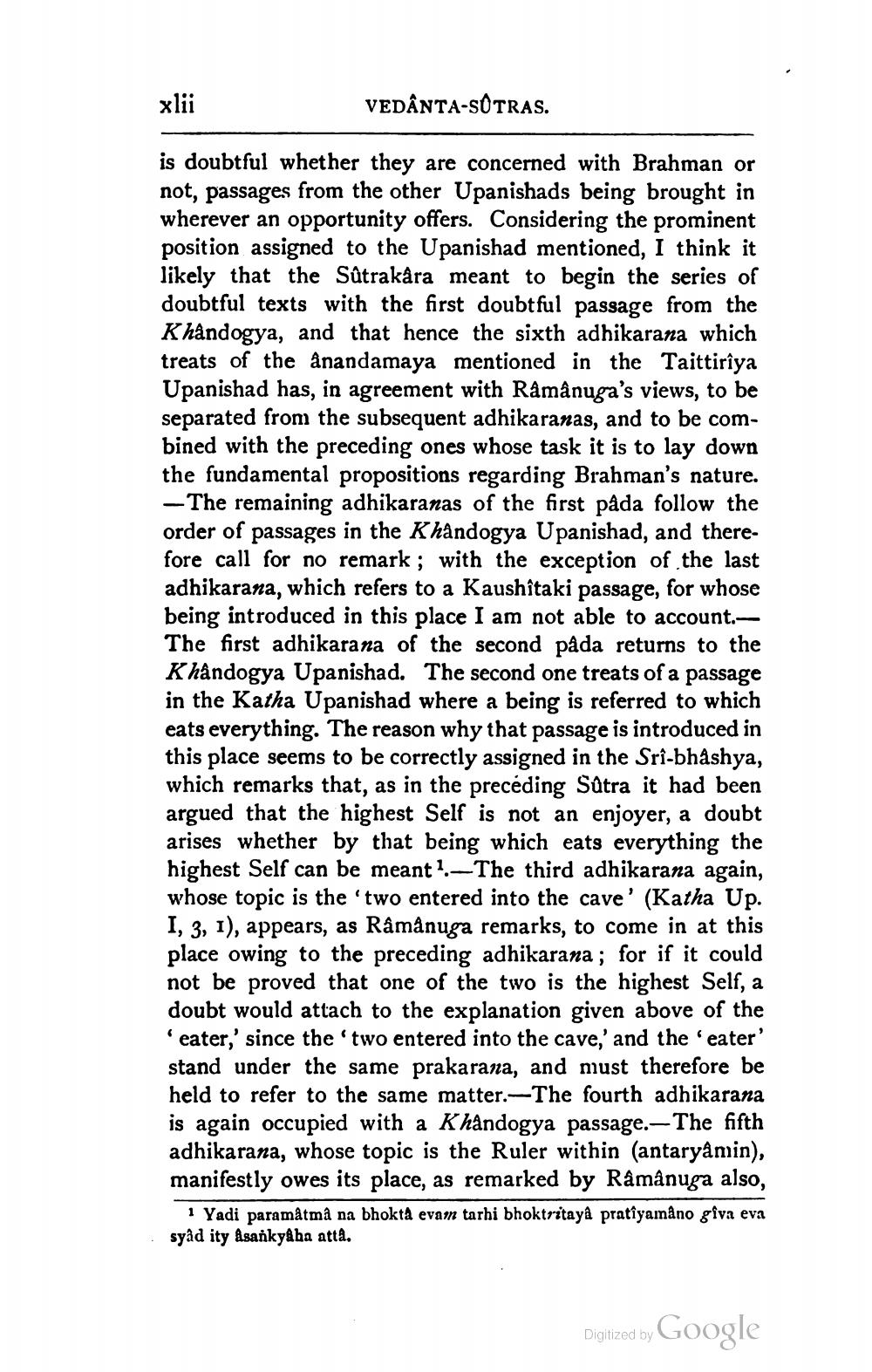________________
xlii
VEDÂNTA-SOTRAS.
is doubtful whether they are concerned with Brahman or not, passages from the other Upanishads being brought in wherever an opportunity offers. Considering the prominent position assigned to the Upanishad mentioned, I think it likely that the Sûtrakâra meant to begin the series of doubtful texts with the first doubtful passage from the Khandogya, and that hence the sixth adhikarana which treats of the anandamaya mentioned in the Taittirîya Upanishad has, in agreement with Ramânuga's views, to be separated from the subsequent adhikaranas, and to be combined with the preceding ones whose task it is to lay down the fundamental propositions regarding Brahman's nature. -The remaining adhikaranas of the first påda follow the order of passages in the Khandogya Upanishad, and therefore call for no remark; with the exception of the last adhikarana, which refers to a Kaushitaki passage, for whose being introduced in this place I am not able to account. The first adhikarana of the second pâda returns to the Khandogya Upanishad. The second one treats of a passage in the Katha Upanishad where a being is referred to which eats everything. The reason why that passage is introduced in this place seems to be correctly assigned in the Sri-bhashya, which remarks that, as in the preceding Sutra it had been argued that the highest Self is not an enjoyer, a doubt arises whether by that being which eats everything the highest Self can be meant 1.- The third adhikarana again, whose topic is the 'two entered into the cave' (Katha Up. 1, 3, 1), appears, as Ramanuga remarks, to come in at this place owing to the preceding adhikarana; for if it could not be proved that one of the two is the highest Self, a doubt would attach to the explanation given above of the
eater,' since the 'two entered into the cave,' and the 'eater' stand under the same prakarana, and must therefore be held to refer to the same matter.-The fourth adhikarana is again occupied with a Khandogya passage. The fifth adhikarana, whose topic is the Ruler within (antaryamin), manifestly owes its place, as remarked by Râmânuga also,
1 Yadi paramātma na bhokta evam tarhi bhoktritaya pratiyamano giva eva syâd ity asankyâha atta.
Digitized by Google




